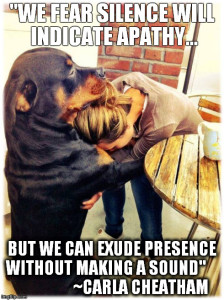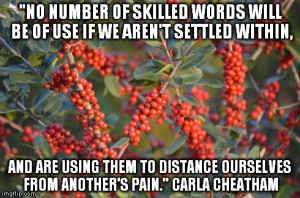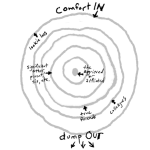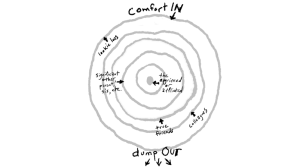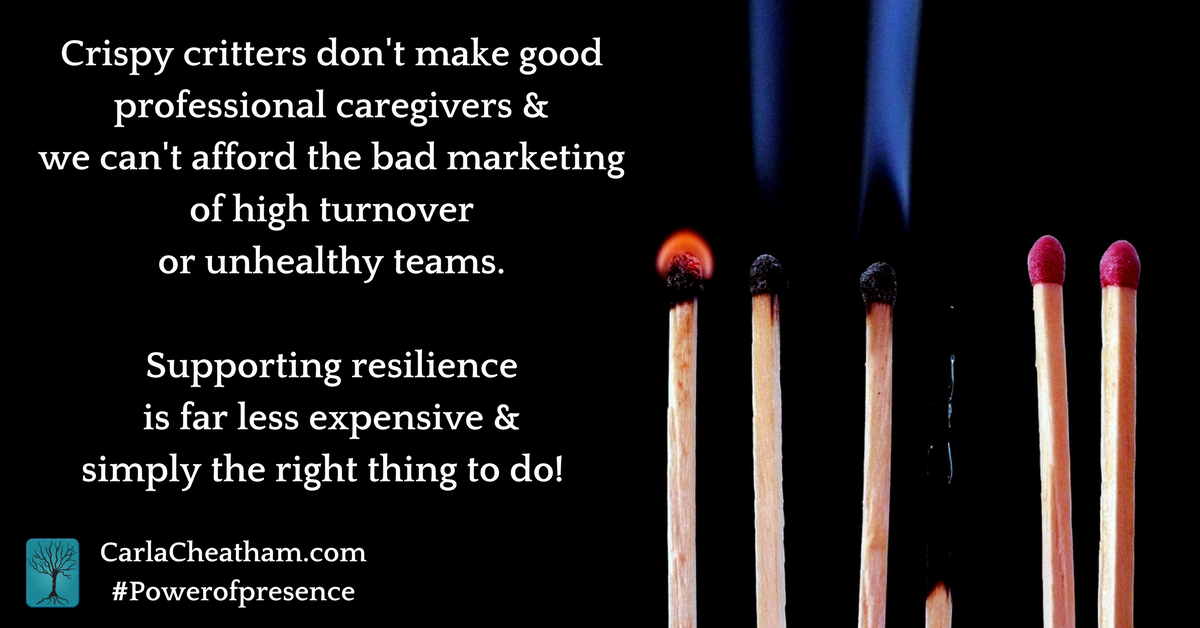
Every week I receive an email or phone call from a colleague in the professional caregiving field from folks who are worn out, burnt to a crisp, feel helpless and overwhelmed and don’t know what to do about it. I speak to HR Directors and Clinical Managers who are desperate to know how to help their teams.
I’m asked more and more to speak about healthy boundaries, self-care, resilience, compassion fatigue (though don’t put those last two words on most continuing education proposals or they’ll get kicked out for being too froo froo, according to my friends in the know!), and other similar topics.
Certainly, in-person trainings are the best way to approach and care for these needs in organizations and amongst professionals, but I’m going to share a series of posts designed to give more of my content to all of you around these issues. My hope is that it will be of some help to you and your colleagues, save a few bald spots and ulcers (and even suicides), and support managers in keeping good staff.
It stinks to see good clinicians leave a team and walk away from professional caregiving because they’ve been overworked, underappreciated, under-supported, outright mis-used, and/or not trained well in how to take care of themselves and practice resilience while doing some of the toughest of jobs.
At the rate we’re going, I’m surprised more aren’t leaving the field and deciding working for the bomb squad is less dangerous to their health than caregiving. We stay because we love what we do, we’re good at it, we make a difference, and we feel absolutely built for it. Sometimes, though, the problem is that we love it too much, and need someone to pull us back from the edge of unreason by the nape of the neck and nudge us gently but firmly toward greater emotional health.
For the next several weeks, this will be my goal.
I’ll cover the history of burnout and compassion fatigue, signs and symptoms and what the research tells us about its causes and cures. As a sneak preview of the answers to those latter two, I’ll cover boundaries—bad ones lead to us be crispy critters—and resilience—more than just a buzzword, it’s a well-documented source of health, well-being, and longevity.
Part of this conversation involves the stories we tell ourselves and the ways in which we find our own sense of meaning in suffering, not to spoon-feed it to others, but to help us remain grounded and centered in a place of peace and empathy rather than getting caught up into the drama and drug under with them.
I’ll talk about what all of that really looks like in practice, how we off-load grief and manage our counter-transference that naturally arises because we’re human, and how we know when we’ve gone too far. Then we must consider how supervisors and colleagues can handle it when members of a team, the whole team, and/or managers go off the rails and we’re surrounded by dysfunction without contributing to the tangled mess, ourselves.
There’s more, but I hope this is enough of an overview and tease to have you be watching for the rest of the series. Business leaders know this—it costs more to find, recruit, hire, and on-board new staff than it does to take good care of and properly train the ones we already have.
Thankfully, they’re paying more attention to hiring the right fit and supporting them well in their positions so they won’t go anywhere. I give huge kudos to leadership that sees these problems and are seeking to remedy it, willing to go beyond lip-service and put real resources behind these efforts.
One durable medical equipment (DME) company that works with hospices nation-wide has done exactly that—hired me to develop hiring criteria so they hire technicians (drivers who deliver and set up needed items in homes and facilities like hospital beds, O2 concentrators, wheelchairs, etc.) who have the attitude of service to be able to walk into rooms or homes where a loved one has an illness that is terminal. Once they’re hired, they want me to train their technicians to be able to walk into any situation without fear or fumbling. I could have reached through the phone and hugged them when they called with their recognition of need and resulting request!
So, let’s do this! If there’s a particular topic you most want and need, let me know, and I’ll try to make sure to work it in. I’ll look forward to hearing your thoughts as the series goes along.
For what it’s worth.
Peace,
Carla

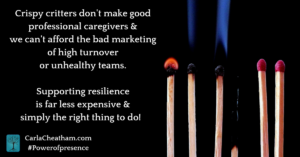



 After a career in social services and advanced degrees in Psychology, Health Education, and Divinity, Carla began working in hospice as a chaplain and bereavement coordinator. She now trains healthcare staff on a multitude of topics through her own
After a career in social services and advanced degrees in Psychology, Health Education, and Divinity, Carla began working in hospice as a chaplain and bereavement coordinator. She now trains healthcare staff on a multitude of topics through her own 







